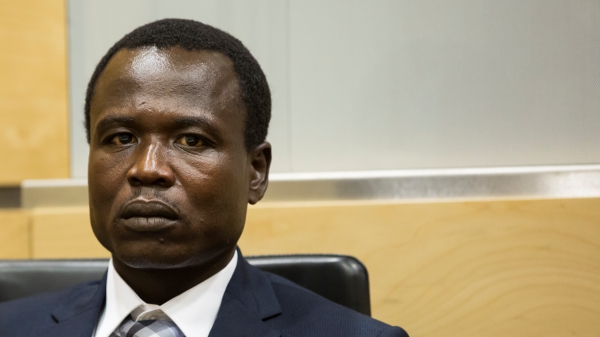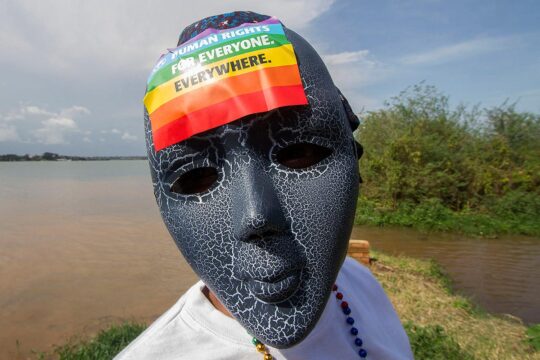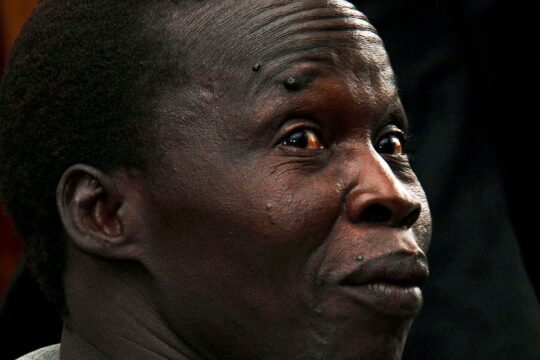On Thursday, Dominic Ongwen, one of the most notorious leaders of the Lord’s Resistance Army (LRA) rebels, will again face judges of the International Criminal Court (ICC) in hearings set to last until January 27. This follows his initial appearance on January 26, 2015,
The “confirmation of charges” hearings before an ICC pre-trial Chamber will not go into the substance of the case but will hear the prosecution’s arguments to decide if it has sufficient evidence to refer the case to trial. The Defence will also be able to respond.
If the pre-trial Chamber decides to confirm the charges, it will send the case to a Trial Chamber, which will then conduct the actual trial.
Dominic Ongwen, said to be around 40, is the first LRA leader to appear before the ICC. The LRA, led by ICC-wanted Joseph Kony, was founded in northern Uganda in the 1980s. It is held responsible for some of the most horrendous crimes not only in Uganda but also South Sudan, the Democratic Republic of Congo (DRC) and Central African Republic (CAR).
In all these countries, the LRA has become known for killing and mutilating civilians and abducting children as slaves or soldiers. But Ongwen, who was imprisoned in The Hague after turning himself in to US forces in the CAR in January 2015, is charged only with crimes committed in his country, Uganda.
Kidnapped returning from school
The suspect himself started as a victim of the LRA. Aged somewhere between 8 and 10, Ongwen was abducted by the rebels when returning from school. He later rose through their ranks to become one of the LRA’s most feared commanders. At the time of his surrender, he was in charge of the Sinia brigade, one of four LRA brigades. He is said to be close to Joseph Kony. According to the Canadian Children’s Rights Council, he was the most “courageous, loyal and brutal” of Kony’s lieutenants.
According to the UN, the LRA has, since its creation, killed 100,000 people in this part of Africa and abducted 60,000 children.
The prosecution has charged Dominic Ongwen with crimes against humanity (murder, enslavement, inhumane acts of inflicting serious bodily injury and suffering) and war crimes (murder, cruel treatment of civilians, intentionally directing an attack against a civilian population and pillaging).
The Defence plans to reject these allegations during the confirmation of charges hearings. Ongwen's lawyer Ayena Odongo said the charges against Ongwen have not been substantiated. "We have done extensive investigations and we think our client has been improperly charged," he said.
Victims can follow the hearings
On September 10, 2015, the judges recommended that the confirmation of charges hearings be held in Uganda, for educational purposes. But on October 28 the ICC President decided, after consulting the Ugandan authorities, that the hearings should take place in The Hague. Justifying his decision, the President pointed to the possibility, also raised by Uganda, of a rise in political tensions in the current electoral period. Campaigning is now in full swing for general elections in Uganda in February, tending to overshadow the Ongwen case. Financial constraints also weighed in the decision to hold the confirmation of charges hearings in The Hague. The ICC President considered that holding them in Uganda would have a significant impact on the resources of the Court which was at the time preparing to move to new, permanent premises in December.
The hearings of January 21-27 will nevertheless be broadcast live by Ugandan TV and radio stations. LRA victims and witnesses will therefore be able to follow this preliminary procedure from the sites of the alleged crimes.
Evelyn Amony, a former wife of LRA leader Joseph Kony, said that as someone who suffered from LRA atrocities, she is eager to follow the Ongwen trial. Watching the court process will bring healing to individuals who suffered at the hands of the rebels, Ugandan newspaper The Monitor quoted her as saying.
Four other LRA leaders, including Joseph Kony and his alleged deputy Vincent Otti, have been sought by the ICC since 2005 but two of them, Okot Odhiambo and Raska Lukwiya, have died according to the ICC, which has therefore terminated proceedings against them.






